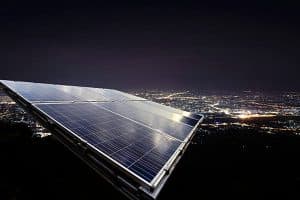As the world switches on to solar power more than ever before, a Swedish research team has come up with a novel solution to comparatively high cost of producing silicon-based solar photovoltaic cells.
A research team headed by Zackary Chiragwandi at Chalmers University of Technology in Gothenburg have isolated the protein that makes the bioluminescent jellyfish Aequorea victoria glow in the dark; and by placing it between two electrodes, the team have been able to produce solar energy from animal matter.
The method is quite complex, but biologically amazing: the green fluorescent protein (GFP) is placed on a wafer of silicon dioxide between two aluminium electrodes. The protein then transforms itself into strands between the electrodes. When ultraviolet light is directed onto the electrodes the protein absorbs the photons and emits electrons, which flow through a circuit and produce electricity, effectively becoming a miniature photovoltaic cell.
The GFP acts like the dye used in other types of photovoltaic cells used on solar panels, such as “dye sensitised” solar cells, called Grätzel cells, which are considered technically attractive because they are made of relatively low-cost materials and do not require elaborate apparatus to manufacture.
But the advantage of using glow-in-the-dark jellyfish protein is it does not require expensive materials like titanium dioxide particles to facilitate photovoltaic energy generation.
While the discovery is unlikely to rock the solar world at this point, or cause much concern in the boardrooms of the big silicon producers, it is yet another example of the innovation at work in the race to find new, cheaper ways of making renewable energy cost-comparable with finite fossil fuels.
(Image credit: Sierra Blakely)









































